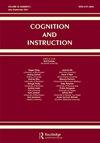青少年在中学STEM中实施社会空间正义:以超地方和跨领域的方式推进正义工作
IF 2.6
1区 心理学
Q2 PSYCHOLOGY, EDUCATIONAL
引用次数: 3
摘要
虽然K12 STEM学习中的(in)正义问题越来越受到关注,但将学习作为社会空间转换的研究有限。我们利用以正义为导向的公平后果学习框架,呼吁人们关注K12 STEM的学习和参与如何植根于年轻人生活的历史和地理。如果不关注学习是一种历史化和社会政治活动的方式,在种族和阶级不平等的交叉点上解决K12 STEM教育中看似棘手的公平挑战的努力将仍然难以实现。我们利用中学课堂研究的数据,重点关注可持续社区的工程,其中社区民族志是工程设计的核心,我们调查了少数群体青年为工程设计带来的社会空间关系,以及关系如何支持青年将压迫性知识和权力结构转变为公平的结果性学习。研究结果表明,通过社区民族志,围绕年轻人丰富的日常经验和社区智慧组织学习工程设计,可以解决超地方性的社会政治社区挑战。因此,主客体关系建立的社会空间地形发生了变化,扩展了被合法化的中学工程设计的话语、实践和成果。呈现这种以权力为中介的地形,可以看到经常隐藏但始终存在的不公正的学校关系,使它们能够以正义为导向的方式重新调解。对社会空间关系的关注揭示了(1)活动的多重尺度,(2)标量间的迁移和相互作用,以及(3)这种相互作用可能产生的影响,这些影响进一步影响了每个尺度上的活动。我们讨论了如何通过社会空间正义的框架推进公平结果学习理论的含义。本文章由计算机程序翻译,如有差异,请以英文原文为准。
Youth Enacting Social-Spatial Justice in Middle School STEM: Advancing Justice Work in Hyperlocal and Interscalar Ways
Abstract While issues of (in)justice in K12 STEM learning have garnered increasing attention, limited research has attended to learning as social-spatial transformation. We draw upon a justice-oriented framework of equitably consequential learning to call attention to how learning and engagement in K12 STEM is rooted in the history and geographies of young people’s lives. Without attention to the ways in which learning is an historicized and sociopolitical activity, efforts to address seemingly intractable equity challenges in K12 STEM education across the intersections of racial and class inequality will remain elusive. Using data from middle school classroom studies focused on engineering for sustainable communities, where community ethnography is central to engineering design, we investigate the social-spatial relationalities that minoritized youth bring to engineering design, and how relationalities may support youth in transforming oppressive knowledge and power structures toward equitably consequential learning. Findings reveal that organizing learning engineering design around youths’ rich everyday experiences and community wisdom through community ethnography, addressed hyperlocal, sociopolitical community challenges. As a result, the social-spatial terrain upon which subject-object relations are enacted shifted, expanding the discourses, practices and outcomes of middle school engineering design that were legitimized. Making present this power-mediated terrain makes visible the often hidden, but ever present, unjust school-based relationalities, enabling them to be re-mediated in justice-oriented ways. Paying attention to social-spatial relationalities reveal (1) the multiple scales of activity, (2) inter-scalar mobilities and interactions, and (3) possible resultant impacts of such interactions that further affect activity at each scale. We discuss implications for how theories of equitably consequential learning can be advanced through the frame of social-spatial justice.
求助全文
通过发布文献求助,成功后即可免费获取论文全文。
去求助
来源期刊

Cognition and Instruction
Multiple-
CiteScore
7.90
自引率
12.10%
发文量
22
期刊介绍:
Among education journals, Cognition and Instruction"s distinctive niche is rigorous study of foundational issues concerning the mental, socio-cultural, and mediational processes and conditions of learning and intellectual competence. For these purposes, both “cognition” and “instruction” must be interpreted broadly. The journal preferentially attends to the “how” of learning and intellectual practices. A balance of well-reasoned theory and careful and reflective empirical technique is typical.
 求助内容:
求助内容: 应助结果提醒方式:
应助结果提醒方式:


